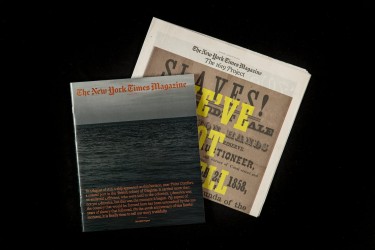Collection
1619 and its Discontents
To mark the 400th anniversary of the arrival of “20 and odd” enslaved Africans in the British colony of Virginia, the New York Times Magazine published a special edition in August 2019, consisting of 18 articles and a number of short essays about the legacies of slavery. Ever since, The 1619 Project's claims have fueled intense debate about how Americans should teach, think, and write about their past. This collection represents the twists and turns of that debate.













